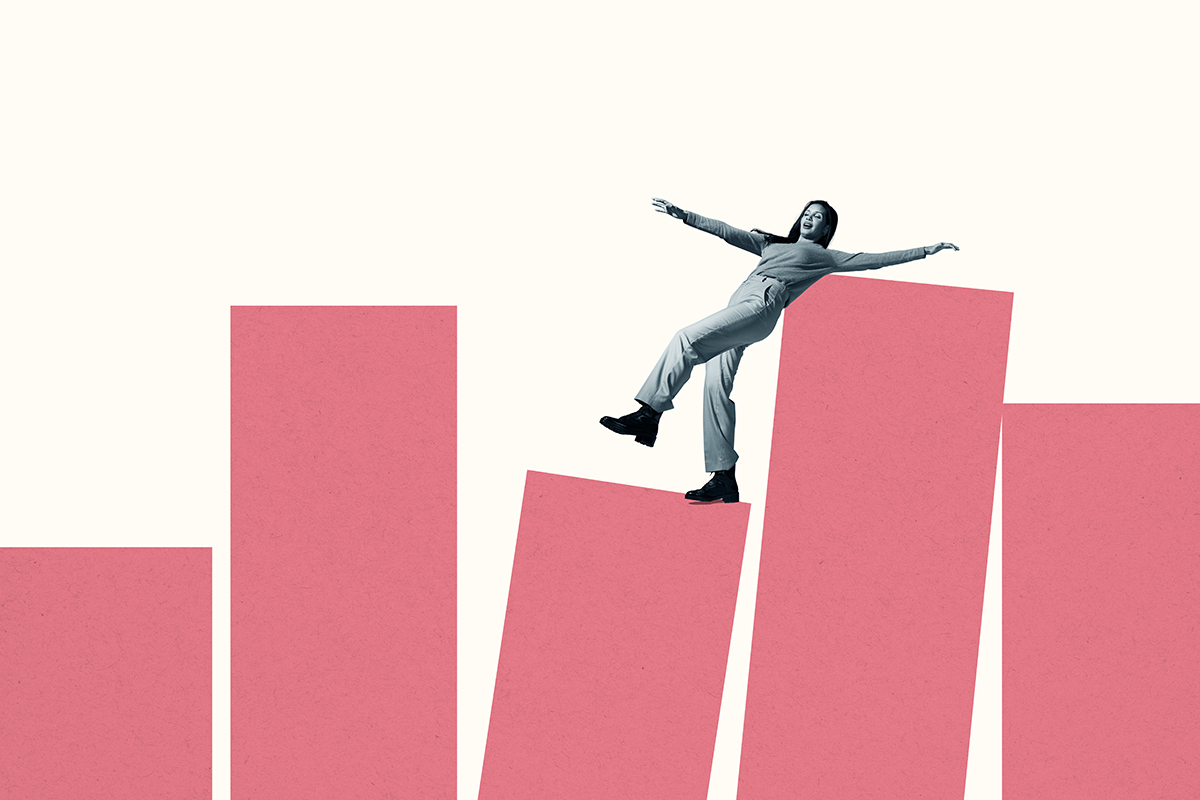As the adopted Latina daughter of an interfaith Jewish-Unitarian lesbian couple, I often have no idea how to accurately describe myself or my home. It’s the lifelong struggle of having so many identities, but never feeling like I fully belong in one. I’m the only person of color in my clan, but I have little knowledge of my Guatemalan culture. I have no connection to my birth family or biological father. There are many gaps that will likely never be closed.
Out of those identities, however, Judaism has always felt like the sturdiest one in my life. It was the religion I most identified with, and the one that structured my house. I marked the years with springtime seders and services at Sixth & I, a non-denominational synagogue in Washington, D.C., through the autumnal comfort of my mom’s briskets on Rosh Hashanah.
My mom encouraged us to partake in religion as we saw fit. We were allowed to shape our own relationship to it, and I did so openly. I loved the familiarity of certain prayers and how they brought us together. Judaism, for me, was synonymous with home.
Perhaps my connection with religion was easier because there was a guidebook in the form of the Talmud and the Torah. The books provided a roadmap to Jewish law and life that felt stabilizing. Though my knowledge of each was base-level at best, I saw how they served as backbones for so many people, and assumed it should do the same for me.
In pursuit of an even stronger connection to Judaism, I became interested in better understanding the Torah and Talmud as a teenager. But there, all I found was disconnection. In my blissful ignorance, I’d overlooked many written technicalities. Under Jewish law, an interfaith and same-sex marriage, like my parents’, would not be recognized. A child born to biological non-Jewish parents, as I likely was, would not be validated either.
Though my family never lived strictly by the book, and our connection to Reform Judaism allowed for more acceptance, having the official written law invalidate my knowledge of home stung in a way I wasn’t expecting. Everything I’d built my identity and sense of belonging around was suddenly wrong. I’d heard countless times that there wasn’t a singular way to be Jewish, but I couldn’t help but feel like there was. It felt dishonest to claim this identity as my own. It felt frustrating not to belong again.
I kept that feeling in mind throughout the last year, as I returned home to the suburbs of D.C. due to the pandemic. I was whisked back to my childhood bedroom and spent the most time with my family since I’d left for college. We were experiencing a new kind of living together, seperate from masks and social distancing. There was the absence of a house full of guests on Passover, but a new appreciation for the memories of those get-togethers. There was the strangeness of Hanukkah this past winter, when we watched services through Facebook, yet somehow the connection felt even stronger. We returned to the normalcy of one another and the traditions we’ve kept over the years.
I also learned to listen more and appreciate what I was hearing. My mom, while doing a work project about Israel, spoke of her own relationship to leaving one home and finding another. On a morning in late autumn, she talked about how her grandfather Carl, for who I’m named, started a new life after leaving Hungary after World War I. I learned more details about his family, whom he lost most of in the concentration camps. I learned how he persevered and was able to start anew in Philadelphia, where my mom’s story began.
On another occasion, I gained more knowledge about the struggle of gaining my Hebrew name. My parents had to search listlessly for a rabbi to perform a ceremony for them, and were often turned away (my mom thinks this was due to their relationship, and because I was likely baptized in Guatemala). The Reform rabbi they eventually found didn’t hesitate, and was adamant about the love of our family. I’d never heard those stories in so much detail and with such transparency before. I was honored to hold them close.
Now, in 2021, there’s a stronger urge to hold onto what is ours. At the start of the year, I watched as my hometown was ransacked by domestic terrorists on live television. My mom works in the Capitol, and when she safely returned, we tried to articulate how it felt to see neo-Nazis parading the streets, to see bigotry, once again, in real time. Her strength that day spoke volumes, and, coupled with a newfound sense of D.C. community, made me realize where I needed to change.
I became prouder of where I was from. I saw that sticking together, despite differences, could extend to all areas of my life. It became crucial to love what made me different, no matter what I was told otherwise.
Finding an idea of home and belonging is a lifelong journey, but I’m more confident in the answers I currently have. Home is composed of both places and people, and Judaism is a large part of its foundation. It’s in the food and traditions that brings us together, and in the fact that they will always remain. It’s in realizing that Judaism extends far beyond Torah portions; it’s what we make of it.
In some people’s eyes, I might never be “enough” of any particular identity. I’m learning to navigate that feeling with support. Through the many months spent with my family, during an intense period of pain and upheaval, my love for what makes us and our Jewishness unique is only solidified. I can recognize that it’s shaped me in my own way.
My Jewish home, and all of its complexities, is my own.



